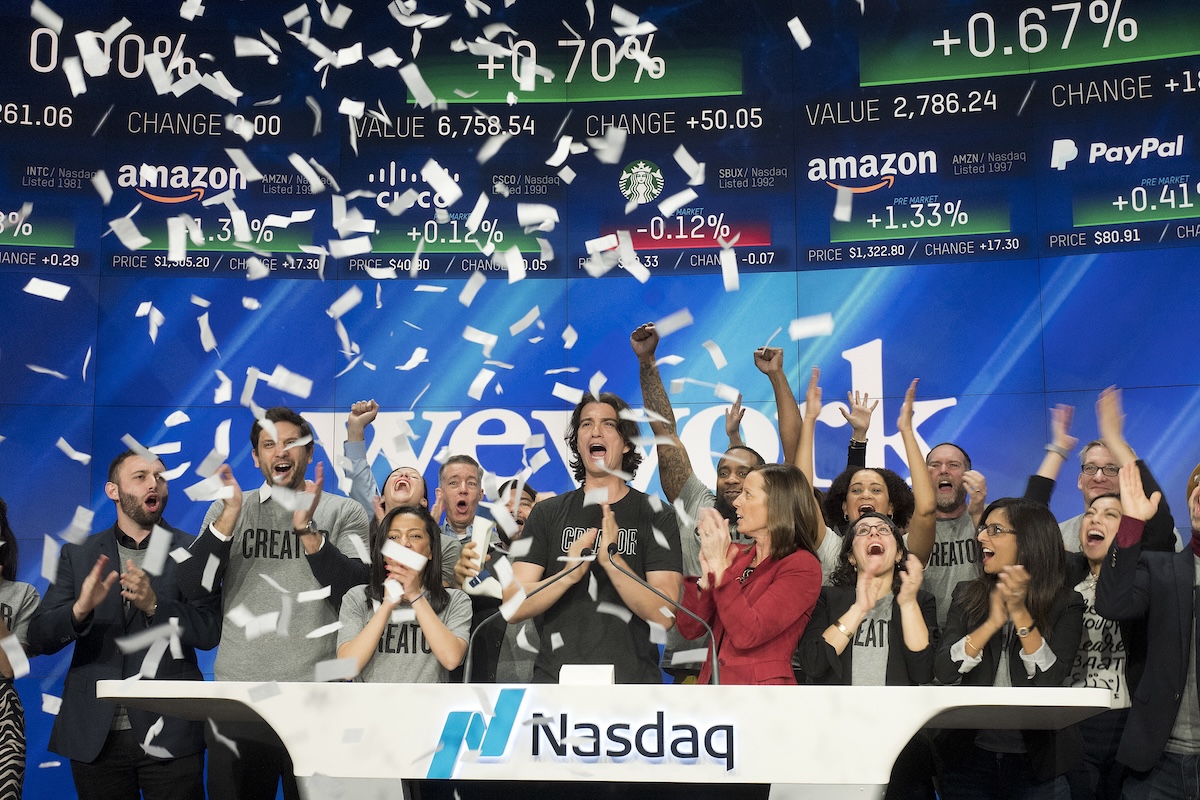“When you speak to customers, don’t let them know you are the owners.” This was the advice given to my wife and me by the previous owners when we bought a business in 2020. The company, which had been active since the late 1970s, was one of the over half of all U.S. businesses owned by Baby Boomers. I took the point of the advice to mean don’t fixate on the label “business owner” but instead stay laser-focused on serving our customers.
Contrast this to the business majors I graduated alongside in college, who, if their LinkedIn profiles can be believed, are all now “Founders,” “Innovators,” and “CEOs” but make few actual sales. They seem more focused on owning a Tesla or landing a TedTalk than creating any particular good or service.
These opposing visions of entrepreneurship mark a generational gap in business values: where entrepreneurs were once focused on contributing something valuable to a specific industry, they are now using their titles to construct a lifestyle. Success for its own sake cannot support a vibrant economy; we need a return to the basic business practice of building long-term relationships with customers by prioritizing their needs and solving their problems. Anything else is a distraction from the purpose of business.
Despite the language of innovation pouring out of university innovation centers and local business incubators that are popping up on every corner, real development by corporations is faltering. For large firms over the past 70 years, the share of research as a percentage of R&D spending has fallen to roughly 20%. This means they’re focusing more on the application of existing technology rather than the underlying scientific advances. Companies have been withdrawing from core scientific research since the 1980s. These trends are concerning from a perspective of productivity growth, which is the underlying driver of economic growth.
This highlights how the U.S. is experiencing a shift away from the culture of consumer-focused value creation and toward the lifestyle associated with entrepreneurship. The ascendant myth of the solo founder upending an industry pervades the marketplace (Mark Zuckerberg’s famous “move fast and break things”). But not everyone can be that founder, and even if they could, the economy couldn’t thrive. New products and services require a set of people with varying skill sets using a mix of existing technologies applied in new ways along with genuinely new tech. The tech “unicorns” are one type of firm, but they do not encompass the average or even the ideal entrepreneurial venture.
Often the lifestyle entrepreneur builds his brand around projecting success; in fact, his real-life success rests partly on how well he can project it. As seen with founders such as Elizabeth Holmes of Theranos, the ability to attract investors rests on a cult of exclusivity and buzz around a brand’s value. The hype becomes their main pitch. The dominance of social media heightens the importance of image. On a micro level, many multilevel marketing firms encourage their sellers to project a certain, often false, image of success and wealth to their downstream clients to encourage them to purchase more products. Cue images of influencers who can rent a staged private jet for a photo shoot. This ideal of entrepreneurship better reflects the reality of working in Silicon Valley than starting or running your own business.
The cultural emphasis on success fueled by a small number of tech companies, influencer founders, and social media has created a misalignment of investment. Businesses touted as “The Uber of ____” or the “Warby Parker of ____” (including Uber itself) are undergoing massive growing pains as investors begin to demand profits. Time will tell whether this new set of firms has created genuine disruption or merely survived on aggressive promotion and the easy venture capital cash flow of the 2010s. WeWork is a perfect example of the cycle of hype running out when it hits the brick wall of business reality. Adam Neumann, WeWork’s lifestyle guru/CEO, claimed that the company would upend everything about how workplaces operated, but the IPO process revealed the lack of business fundamentals. In reality, WeWork was just a grossly overvalued office-leasing company.
This perceived grandiose entrepreneurial lifestyle also has a negative impact on the labor market, creating an oversupply of people who want to work in industries they perceive positively and a drastic undersupply in negatively perceived industries, such as the trades. The missing consideration is the value they could provide to another person through working an in-demand job with integrity and excellence. Another slightly humorous trend is the Econ major who would much rather work for a “Big 5” consulting firm than a slow-moving corporation. In the end, he’ll get the consulting job and his first consult will be for Walmart corporate. (Part of the role of the consulting firm is to mask the résumés of top talent to show them on paper as working for firms with reputational prestige.)
Exciting lifestyles, hustle culture, and influencer entrepreneurs are a distraction to the type of long-term investment we need. Entrepreneurs must embrace old-fashioned value creation. We need more companies quietly and patiently tailoring new ways to provide solutions to their clients by paying attention to the pain points in their industries and innovating. Excellent examples of these types of businesses are all around us, even if they are often less than flashy.
At a time when organic and all-natural food stores were niche, John Mackey built Whole Foods into a multinational grocer. His focus on food fundamentals and building a healthy team allowed his business to thrive; it grew to 500 stores in the U.S. and eventually was bought by Amazon. Mackey & Co. brought quality food to a much wider audience through the development of a simple idea. Now nearly every major grocery store has a large natural and organic section, a change influenced by Whole Foods.
Businesses can solve broader problems that we face, such as aging infrastructure, if they would make providing solutions a priority. According to the Wall Street Journal, “Our nation’s most critical infrastructure—from pipelines and industrial plants to ships and suspension bridges—is slowly going to pieces, leading the American Society for Civil Engineers to give our infrastructure a C-minus on its most recent report card.” Applying advances in technology, Gecko Robotics uses robots to inspect aging infrastructure such as pipelines and water towers for issues. They can do so at a much lower cost than traditional alternatives. While less buzzy than their fintech cousins, Gecko Robotics’ products are utilized globally to monitor over 60,000 pieces of physical infrastructure. Gecko shows that a tech start-up need not give in to the cycle of hype around entrepreneurs; it has remained focused on the problem it solves for its target market.
Entrepreneurs have a noble calling to address previously unmet niches in the marketplace, but this call can be muddled by cultural forces that currently dominate. The best way to combat rampant cycles of hype and disappointment that haunt the business world is a return to value creation. From the advice we first received from the previous owners of our business, we have tried to remember that our customers, not ourselves, are the center of our business. That is an invaluable attitude reorientation we hope to maintain. Now is the time to shift from an entrepreneurial culture of self-promoters to one of problem solvers.

